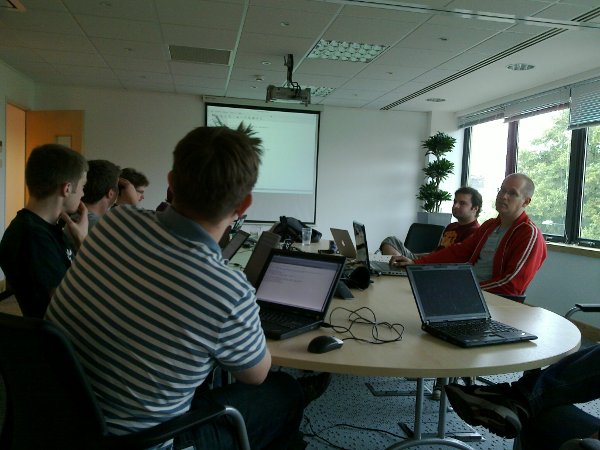We put up the full schedule today for the GStreamer Conference 2011. I am very excited about the agenda this year and all the great talks we got lined up. I am especially happy that the effort to reach out to people outside the immediate GStreamer community has paid off, giving us exciting talks from John Luther and Matt Frost of WebM fame, the legendary Monty Montgomery of Xiph.org and Arun Raghavan speaking about Pulse Audio. This of course in addition to all our great GStreamer talks like Wim Taymans speaking about GStreamer 1.0.
Another talk I am especially excited about is the talk by Joshua Doe and Stephen Burks who works for the US Army RDECOM CERDEC NVESD unit(just rolls of the tongue doesn’t it :). Who will talk about their use of GStreamer. I know that there are quite a few cases in the military world where GStreamer is used, so I think this talk can be an interesting window into that world, which due to its high security nature often can be quite low profile even when things are not directly secret.
A big thanks you to our sponsors this year Collabora, Fluendo, Google and UbiCast. Without their support it would not have been possible to put this event together.
Make sure to register for this years GStreamer Conference before the 24th of September in order to get the early bird fee. Looking forward to seeing you all there!
And if you are still not 100% sure you will attend, make sure to look at the schedule and speakers overview, because I am sure they will convince you to come :)


